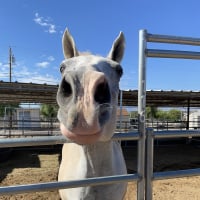Repercussions from shunt surgery.


(cell phone, shoes etc.) constantly.
He has Medicare and Aetna as a secondary. Insurance doesn’t cover in home care or day care out of the home. Seems like I can’t get a break at all. He can’t be left alone. I’m so desperate for help. Any suggestions?
Comments
-
welcome. So sorry about your husband. You might try your county’s Agency on Aging. Sometimes they have free or low cost day care. Also call the Alzheimer’s Association toll free number. 800-272-3900. They may know of other assistance in your area.
2 -
My DH had dementia six/7 years before our hydrocephalus procedure . Drainage of spinal fluid to see if it made improvements before shunt procedure. Mayo Clinic. He changed so quickly for the worse while still hospitalized. He became agitated and nursing homes would not accept him. They would not let me take him home. They wanted to commit him to some NH there in a city we did not live in . I found a nursing home that would take him in our home town 4 hours away due to a hospice recommendation. They called Mayo and they let us go. I paid an ambulance to take him home . After arriving to the NH , I got his long term care insurance started . He died three weeks later. My fault for insisting on the hydrocephalus procedure. I should of left it alone.
2 -
Very sorry that you had a similar experience to ours after the VP shunt surgery. Please find support as soon as you can to stay safe. With other dementia in addition to NPH, the improvement with a VP shunt can be very short. I think that is what happened to DH.
In our case NPH was diagnosed in February when DH was admitted after my 911 call due to the behaviors you describe (hallucinations and aggression when he didn't recognize me in the middle of the night and physically attacked me). He was started on Seroquel (Quetiapine) and had VP shunt surgery scheduled for March.
The VP shunt surgery led to hospital delirium and aggressive behavior, physical and chemical restraints in the hospital. Horrified by the lack of understanding of dementia by hospital staff (he was terrified!), I brought him home in an ambulance in restraints from the hospital. He couldn't walk because he had not been allowed out of bed for a week for PT. It took a full month with 24/7 care from me to be able to finally transfer daily from bed to wheelchair, shower in the wheelchair, and eventually be able to use the kitchen counter as a sit to stand device. After 6 weeks, DH began taking his first steps with a walker, and then PT at home started. By May, we could do short walks with the walker and car transfers. In June we were able to go out to eat, for wheelchair walks at local parks. I even have a video of him jogging with PT down the street (he was always athletic!) in June. By July, I noticed weekly declines, and by August, he could no longer remember how to get in and out of the car. Now in September, DH is nonambulatory and sleeps 14-16 hours per day. He is declining weekly.The hallucinations never stopped. The VP shunt never improved cognition, only mobility. He was not incontinent before the procedure, but did have urinary urgency. He returned to baseline and made some improvement there as well, able to use the toilet with assistance until recently.
I'm giving you a lot of detail so that you know that you may be able to see improvement over time. It can take several months to see the full effects from VP shunt surgery, and the shunt is likely programmable and may need to be adjusted.
As you can see from our story, improvement for us was short. But DH got in one last run, and he got to have lunch out for his birthday and father's day in June. My only advice is to cherish the good and prepare for the exhausting task of keeping everyone safe.3 -
Please don’t blame yourself. You were making the best decision you could with the information you had. You were hopeful it would help not hurt.
I know this because you care so much you feel guilty. DON’T, please.1
Commonly Used Abbreviations
DH = Dear Husband
DW= Dear Wife, Darling Wife
LO = Loved One
ES = Early Stage
EO = Early Onset
FTD = Frontotemporal Dementia
VD = Vascular Dementia
MC = Memory Care
AL = Assisted Living
POA = Power of Attorney
Read more
Categories
- All Categories
- 618 Living With Alzheimer's or Dementia
- 335 I Am Living With Alzheimer's or Other Dementia
- 283 I Am Living With Younger Onset Alzheimer's
- 17.4K Supporting Someone Living with Dementia
- 5.7K I Am a Caregiver (General Topics)
- 8.5K Caring For a Spouse or Partner
- 2.8K Caring for a Parent
- 233 Caring Long Distance
- 168 Supporting Those Who Have Lost Someone
- 17 Discusiones en Español
- 5 Vivir con Alzheimer u Otra Demencia
- 4 Vivo con Alzheimer u Otra Demencia
- 1 Vivo con Alzheimer de Inicio Más Joven
- 12 Prestación de Cuidado
- 3 Soy Cuidador (Temas Generales)
- 8 Cuidar de un Padre
- 23 ALZConnected Resources
- View Discussions For People Living with Dementia
- View Discussions for Caregivers
- Discusiones en Español
- Browse All Discussions
- Dementia Resources
- 8 Account Assistance
- 15 Help









